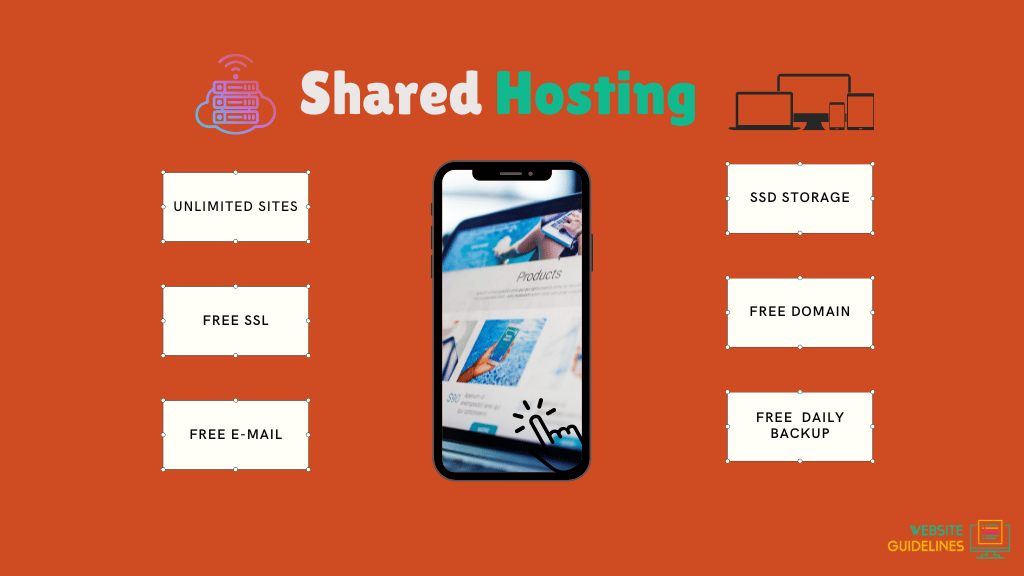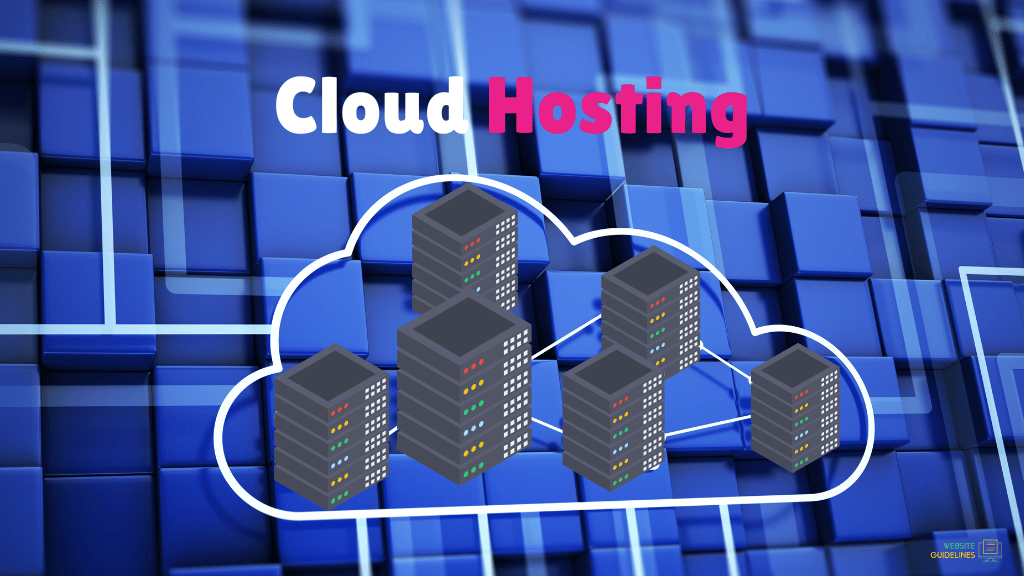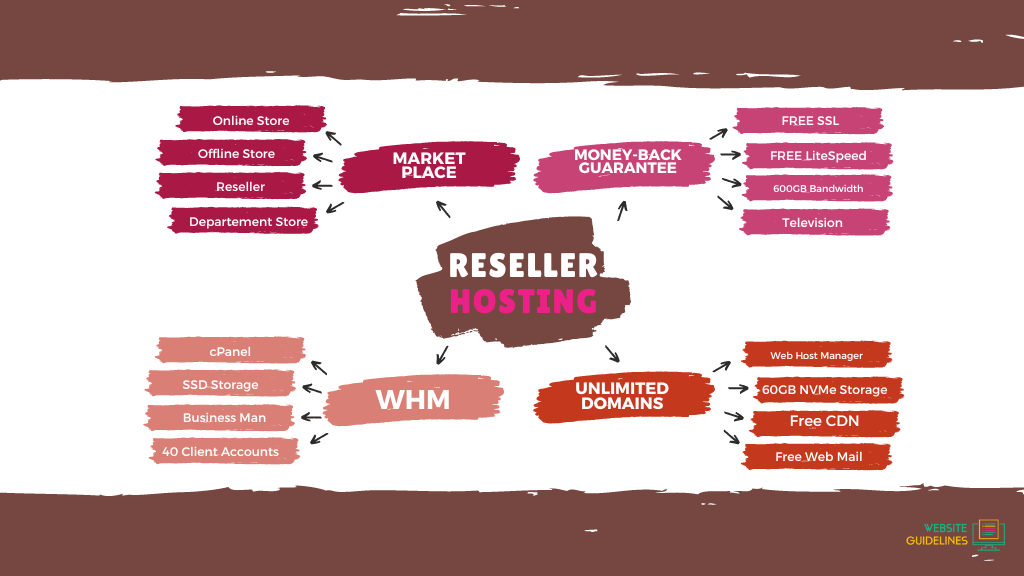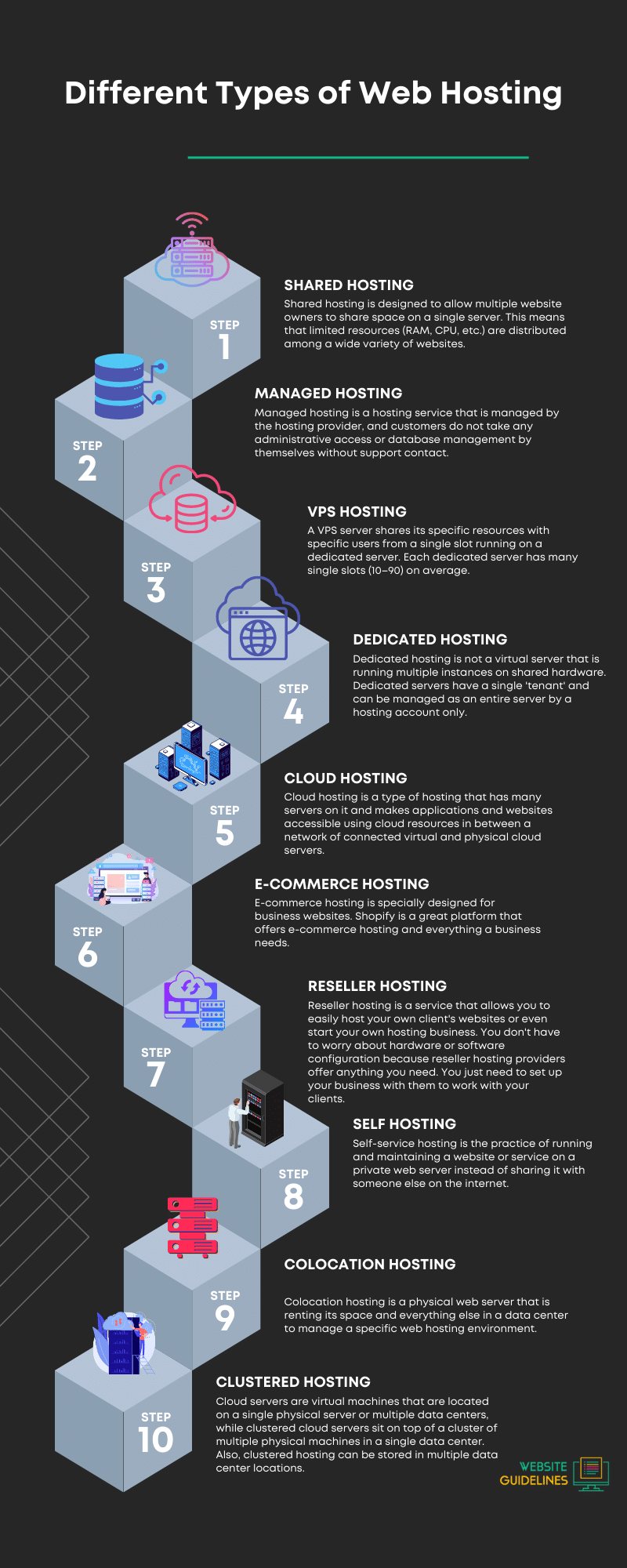If you want to make a website, you need website hosting.
There are many web hosting providers to choose from, but it’s important to know what website hosting is and what the different types of website hosting are available nowadays.
All you need to know before choosing any of the 10 different types of web hosting out there.
So let’s get started.
What is Website Hosting?
Web hosting is an online service that stores a website’s files and databases. In general, it is an online space technology called web hosting. It allows individuals and organizations to make their websites accessible via the World Wide Web.
What are the Different Types of Web Hosting?
The 10 primary types of website hosting services are:
1. Shared Hosting

Shared hosting is one of the most popular web hosting services available today. It is designed to allow multiple website owners to share space on a single web server.
This means that limited resources (CPU, RAM, etc.) are distributed among different types of websites. Which is usually recommended for beginners.
So if you’re looking to start a new website, then a good-quality shared hosting service is required to handle all your website’s requirements, including free SSL, free business e-mail accounts, SSD storage, unlimited bandwidth, free server-side backups, etc.
Hostinger is a top shared hosting provider compared to others when you’re looking to get the most out of your money. They’re offering all of these essential features and services including unlimited website hosting and a free domain name with any of their shared hosting plans.
2. Managed Hosting

Managed hosting is a hosting service that is managed by the hosting provider. Customers do not have any administrative or database access; instead, they receive official hosting support.
However, by using managed hosting, you don’t waste time managing your hosting account, and during that time, you can expand and promote your business, which is not possible with shared hosting. You just need to contact live chat support, tell them your problem, and they will solve it.
Managed hosting is specifically designed and developed for a platform of choice. So there is no need to mention or add WordPress Hosting separately as a different type of hosting.
There are many types of managed hosting available, including managed WordPress hosting, managed Joomla hosting, managed Drupal hosting, managed Node.js hosting, etc. All of these hosting services are managed by different hosting providers for different platforms.
3. Virtual Private Server (VPS) Hosting

The VPS server shares its specific resources with specific users from a single slot running on a dedicated server. Each dedicated server has many single slots running (10–90 on average).
You can always add or remove hardware resources, including CPU, RAM, and space, on the fly with a single click when you need them and only pay for what you utilize.
A VPS server is essential for those looking for extra speed, solid uptime, and a dedicated IP address that boosts your SEO rankings in search engines and prevents your IP from being banned by another website stored on the same server.
4. Dedicated Hosting

A dedicated server is a server that’s literally dedicated to you and no one else, while a virtual private server (VPS) splits the resources of the server between different sites or hosting accounts.
It’s not a virtual server that is running multiple instances on a single server. It has a single ‘tenant’ and can be managed as an entire server by a hosting account only.
Dedicated hosting is ideal for large or enterprise business websites or applications that need an ultimate powerhouse for millions of visitors worldwide.
5. Cloud Hosting

Cloud hosting is a type of hosting that has many servers on it and makes applications and websites accessible using cloud resources in between a network of connected virtual and physical cloud servers.
Cloud hosting gives you the freedom to stop wasting your money paying for resources that you don’t use on a shared server or dedicated server. Flexible resources that let you allocate as much CPU, RAM & SSD disk space as you need.
Nowadays, there are many cloud hosting providers available, including Google Cloud, AWS, Microsoft Azure, Digital Ocean, etc. Creating a website with them is a bit complex and requires technical knowledge to install and deploy different apps to make your server live.
However, Cloudways is a one-stop solution where you can get any of them as a managed cloud hosting service for a pay-per-use program and other flexible billing options.
6. E-commerce Hosting

E-commerce hosting is a type of hosting service that is specifically designed for hosting online stores or e-commerce business websites. It offers specialized hosting solutions that are optimized for specific features and functionalities to facilitate online transactions, manage product inventory, handle customer orders and payments, and ensure secure online transactions.
Shopify is the most popular e-commerce solution provider that offers everything in an online store, including a store builder, themes, an app store, an in-house payment gateway, live chat support, social media integration, e-commerce optimized hosting, content delivery networks, and many more.
Also, there are many different types of e-commerce hosting options available for each different platform, such as WordPress WooCommerce hosting, BigCommerce eCommerce hosting, Wix Business, eCommerce hosting, etc.
7. Reseller Hosting

Reseller hosting is a hosting service that allows you to easily host your own client websites or even start your own hosting business. You don’t have to worry about setting up complicated servers or networks, and you won’t have to purchase or set up hardware or software configuration. Because reseller hosting providers offer everything you need to set up your business to work with your clients!
Reseller hosting providers give you the ultimate access to the tools you need to start reselling it yourself. Simply sign up for your package, get the automated billing software installed on your website, supply some basic information about your online business, and you’ll instantly be able to sell hosting plans to your potential customers.
8. Self-Service Hosting

Self-service hosting is the practice of running and maintaining a website or application on a private web server instead of sharing it with someone else on the internet.
You’ll need a computer or a dedicated server machine that meets the requirements for running any of the home server software, including Windows Server, Linux distributions such as Ubuntu, CentOS, and Debian, or even personal media libraries software like Emby or Plex.
Localhost is the most popular way for web developers to build and test websites or applications on a local PC. Then they can host it online.
9. Colocation Hosting

Colocation hosting is a hosting service that rents its physical web server space and everything else in a data center to manage a specific web hosting environment. It’s very similar to dedicated hosting.
The main difference between them is that colocation is a type of hosting where you rent an empty slot in a rack of a data center that needs to be set up with your software license and configuration, while dedicated server hosting is where you rent an existing server that is ready to use.
10. Clustered Hosting

Clustered hosting is web hosting where multiple servers are used to host a single website. This can provide improved performance and redundancy over traditional hosting across multiple physical machines, or nodes, around the world.
Cloud servers are virtual machines that are located on a single physical server within multiple data centers, while clustered cloud servers sit on top of a cluster of multiple physical machines in a single data center or in multiple data center locations.
Which Hosting is Best for You?
Different hosting is designed for different purposes. For a portfolio website, a cheap shared hosting plan is enough to handle the workload. It is less expensive and offers all the other essential features a website needs.
But a site with lots of different pages and posts with various media requires good-quality managed hosting or cloud hosting. Otherwise, dedicated hosting is essential for enterprise business websites if they are getting lots of visitors a day.

Here are the 10 types of hosting and the best web hosting provider for each type:
- Shared Hosting – Hostinger
- Managed Hosting – Kinsta
- VPS Hosting – Scala Hosting
- Dedicated Hosting – Liquid Web
- Cloud Hosting – Cloudways
- E-commerce Hosting – Shopify
- Reseller Hosting – NameHero
- Self-Service Hosting – Emby Server
- Colocation Hosting – TierPoint
- Clustered Hosting – ClusterCS
Conclusion
Every website is hosted somewhere.
When choosing a web host provider, you might assume the decision doesn’t matter that much.
However, the wrong hosting type can have a serious impact on your website’s performance and the costs associated with it.
But when these two factors are seriously considered, you can find the right host.
And for that, you might consider our top hosting providers for each different type of hosting.
Which hosting type is right for your business?
Let us know by commenting below, and if you find our guide helpful, please share this article on your favorite social media or blog. We’ll be happy to hear your thoughts.







